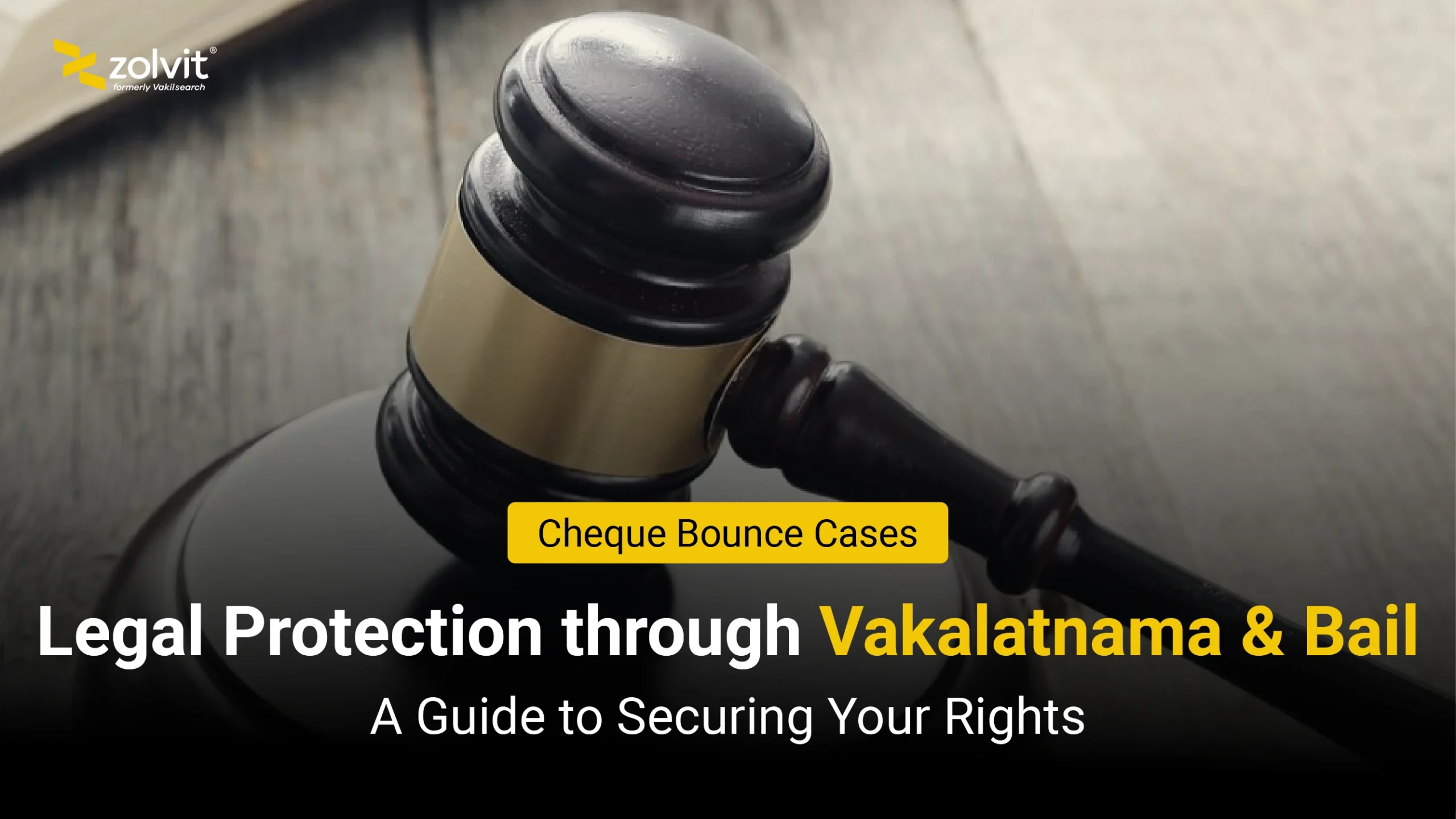Cheque bounce incidents are more than just simple financial missteps. The dishonour of a cheque can escalate into serious legal consequences, particularly under Section 138 of the Negotiable Instruments Act. A cheque bounce, also known as “dishonour of cheque,” is a serious issue that occurs when a bank refuses to process a cheque due to reasons like insufficient funds, closed accounts, or signature mismatches. Under Indian law, particularly Section 138 of the Negotiable Instruments Act, 1881, cheque bounce cases are treated as criminal offences. The consequences can be severe, including imprisonment of up to two years or a fine amounting to double the cheque’s value.
Besides criminal prosecution, the payee (the person owed the money) can file a civil suit to recover the amount. The legal complexities involved make early intervention crucial, which often includes filing a Vakalatnama (to secure legal representation) and applying for anticipatory bail (to prevent arrest). This guide outlines these processes and the importance of timely legal actions to manage cheque bounce cases effectively.
Key Legal Steps in Cheque Bounce Cases
Filing a Vakalatnama
A Vakalatnama is a legal document authorising a lawyer to represent you in court. It’s the first step in defending yourself and protecting your rights in cheque bounce cases.
- Why It Matters: A Vakalatnama ensures professional representation, timely responses to legal notices, and smooth court proceedings.
- How to File It:
- Consult a Lawyer: Choose one specialising in cheque bounce cases.
- Sign the Vakalatnama: Officially authorise the lawyer to act on your behalf.
- Submit to Court: Your criminal lawyer will file the Vakalatnama, allowing them to represent you in all subsequent legal matters.
Applying for Anticipatory Bail
Anticipatory bail is a legal tool that prevents your arrest before charges are formally pressed, safeguarding you in cheque bounce cases where arrest may be imminent.
- When to Apply: If you receive a legal notice or if a complaint under Section 138 has been filed against you, it’s essential to apply for anticipatory bail.
- How to Apply:
- Consult Your Lawyer: They will assess your situation and draft the bail application.
- Submit the Application: The application is typically filed in a sessions or high court.
- Attend Court Hearings: Be present with your lawyer for the bail hearing.
- Await the Decision: If granted, you’ll be protected from arrest but must comply with future court orders.
Step-by-Step Process for Cheque Bounce Cases
- Hire a Lawyer: Opt for one experienced in cheque bounce cases.
- Sign and File the Vakalatnama: This authorises the lawyer to represent you.
- Prepare for Anticipatory Bail: If arrest is likely, ensure your lawyer drafts and files the necessary application.
- Attend Court Hearings: Whether for the case or bail, your presence in court is mandatory.
- Follow Court Orders: If granted bail, ensure compliance with all legal obligations.
Early Legal Intervention: Why Timing Is Crucial
In cheque bounce cases, taking prompt action can be the difference between resolving the issue smoothly and enduring a prolonged legal battle. Filing a Vakalatnama early on provides you with expert legal representation, while securing anticipatory bail prevents the risk of arrest. Addressing the issue swiftly may also offer an opportunity to negotiate a settlement or repayment plan, potentially avoiding court altogether.
How Zolvit Can Support You
Zolvit is here to offer essential legal assistance for anyone facing issues with cheque bounces. Our expert team can help you with:
- Consultation: Clarifying your legal rights and what the bounced cheque means for you.
- Preparing Documents: Assisting you in preparing the necessary paperwork to address the cheque bounce.
- Representation in Court: Providing experienced representation if your case goes to court.
- Step-by-Step Guidance: Ensuring you navigate the legal system with confidence and understand every option available to you.
Conclusion
Cheque bounce cases carry significant legal consequences. By promptly filing a Vakalatnama and applying for anticipatory bail, you can protect your rights and navigate the legal system more effectively. Early legal intervention ensures you’re well-prepared and may even allow for an amicable resolution, sparing you from harsher penalties.
Related Blogs:
- Cheque Bounce Cases in India
- Cheque Bounce and Partnership Disputes in India
- Role of a Criminal Lawyer in Protecting Your Rights
Related Case Study:

